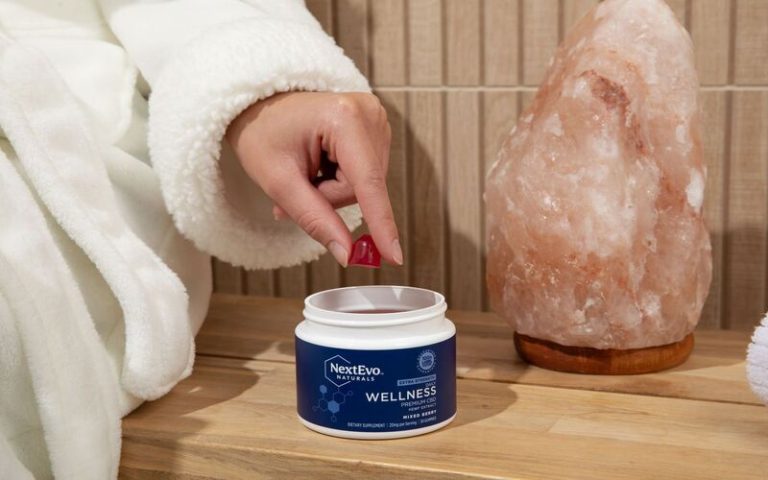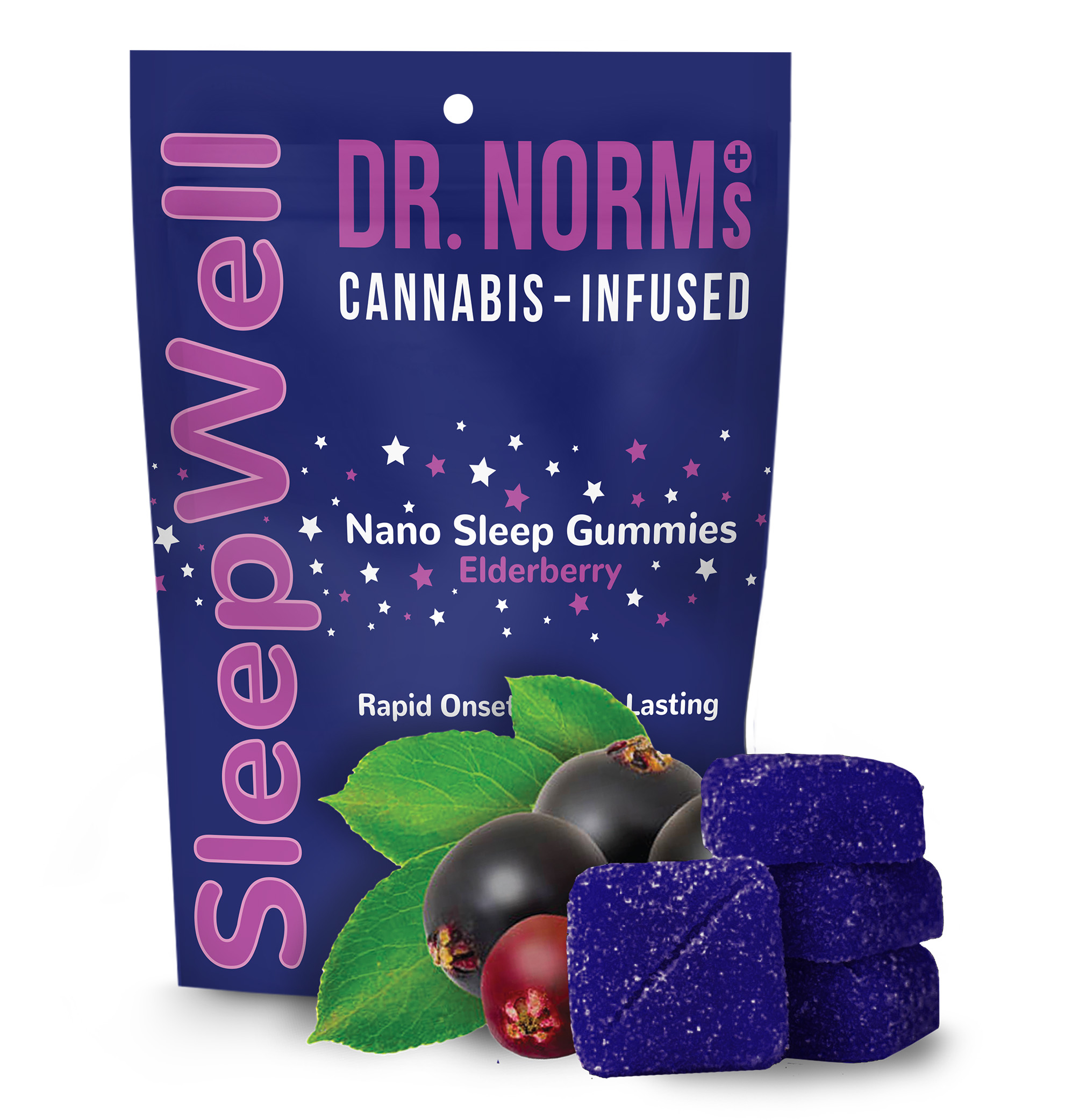
[ad_1]
Despite the tremendous therapeutic promise of cannabidiol (CBD), some users who try it report they don’t feel its effects. Why could that be the case?
“A huge challenge this industry faces is dosing and quality of products,” John McDonagh noted. He is the CEO and President of NextEvo Naturals, a leading premium supplement brand focused on revolutionizing the delivery of nutritional compounds.
“Someone could be taking a 15 milligram CBD oil tincture and getting very little of that into their body. By underdosing you’re not going to get the full benefits CBD has to offer,” McDonagh continued.
How can consumers be sure they’re getting the full benefits of CBD? One approach industry experts are targeting is improving CBD bioavailability rates. Bioavailability refers to the rate at which compounds are absorbed by the body.
Many consumers are most familiar with conventional, oil-based CBD products. But — surprise, surprise! — conventional CBD formulations may not be the most bioavailable form of CBD available.
Gerry McNally, Ph.D., Head of Research and Development at NextEvo, explained that THC and CBD are fat-soluble substances.
“When we say ‘conventional CBD products’, we’re usually referring to products like oil-based tinctures and soft gels. These products are an easy way to formulate CBD,” McNally said. “However, this isn’t ideal for the absorption of CBD from the
GI tract.”
McNally added that oil-based formulations are often associated with relatively poor uptake from the body, resulting in a miniscule amount of CBD that’s ultimately absorbed into the bloodstream. “When you take these lipophilic or fat-soluble compounds and emulsify them,” McNally went on, “you enhance the absorption.”
Wait: what? How does that work? What does it mean to emulsify fat-soluble CBD?
What is Nano-Emulsified, Water-Soluble CBD?
“CBD is naturally oil-soluble and hydrophobic, which means it does not dissolve in water. Our bodies are able to process water-soluble compounds much quicker and more efficiently than oil,” Vlasic Bioscience President Adam Rosenberg explained.
“Nano-emulsification is the process of breaking down the oil-soluble CBD into miniscule particles and encapsulating it in an emulsifier that allows it to be absorbed in water,” Rosenberg continued. “This process results in CBD that is more efficiently processed by the body, resulting in a significantly higher percentage of CBD entering the bloodstream.”
Impressive claim. So, just how is this accomplished? Dr. Lucas McCann, co-founder and chief scientific officer at CannDelta Inc., offered an overview:
“CBD is mixed with a surfactant and a carrier oil. It is then subjected to high-energy mixing with a sonicator to break down the oil droplets. A sonicator uses very high-frequency sound waves that our ears can’t really hear but it can break up the CBD oil into very small droplets. When the droplets get that small, other materials can surround it and encapsulate it.”

Does all that work yield “better” CBD? Dr. McCann explains that because of their tiny size, CBD nano-droplets can be very quickly absorbed into the body — within minutes of them hitting the tongue or stomach.
This can result in quick-acting effects compared to “regular CBD” which is processed in the liver. CBD processed in the liver has a longer onset time.
“The liver metabolizes a lot of the CBD that gets absorbed conventionally,” McNally added. “And therefore these emulsified systems tend to deliver four to five times greater absorption into the bloodstream.”
Many companies have gone as far as developing proprietary processes regarding nano-emulsion. Jeff Koz, president and co-founder of Dr. Norm’s Wellness, a division of Dr. Norm’s brand focusing on minor cannabinoids, noted that all of their nanoformulations are created in-house, led by Director of Science and Technology Jason Jamrowsk.

“We manufacture through what is called ‘controlled chemistry’,” Koz explained. “This is a pharmaceutical process that bonds the oil from the cannabinoids with water. This results in a uniform and repeatable particle, meaning consistency in size and weight from particle to particle.”
Koz touched on the sonification method as well. “Some manufacturers use sonification, where the molecules are blasted with sound waves to achieve the same effect.”

“This is not as efficient as the resulting nanoparticles are not consistent, and some are damaged. This is using force to achieve the result whereas ours is a chemical process.”
NextEvo spent over six years dedicating its R&D team — staffed by people with previous experience working at Johnson & Johnson — to finding the Goldilocks standard of nano-CBD.
“Our products have been tested over six years to find the right particle size, the right emulsifiers,” McDonagh said. “We’ve seen data proving that our products are exceptionally better absorbed than other products.”
McDonagh also proudly noted that this process is ongoing, “We’re going to continue to optimize and make products even better as we go.”
Exploring Better Absorption Claims
Do nano-emulsified CBD products deliver greater benefits than conventional, oil-based CBD? “The delivery system for anything makes a massive difference in how the body processes it or uptakes it,” says Sean Norris, director of chemistry at MC Nutraceuticals (MCN).

“There is research that shows there are higher levels of CBD in the blood when a nano-emulsion is used instead of standard CBD oil.”
The more CBD is absorbed, the higher the bioavailability, theoretically resulting in greater therapeutic benefit.
Koz summed it up nicely: “Nano-emulsified products have a faster onset — they get to work faster. They can be more potent, requiring lower doses to achieve the same effect. They are more bioavailable, meaning they are absorbed more efficiently into the body — utilizing more of the available cannabinoids.”
What’s Next?
What’s next in the world of nano-CBD? Many folks are looking into adding other “minor cannabinoids” into the mix: “There’s a lot of interest in the other cannabinoids and what benefits they can provide,” says McDonagh. “We’re definitely going to be looking at ways to study those benefits.”
Dr. Norm’s is also on the minor cannabinoid hunt: the brand launched their new SleepWell line and became the first company to “nanotize” CBN earlier this year. The SleepWell Elderberry Gummies are the only fast-acting sleep gummies that contain both nano CBN and nano THC.
At the end of the day consumers still “need to be cautious in select-ing their Nano CBD products,” Koz cautioned. “There is a ton of misinformation out there that can mislead consumers.”
This article first appeared in Volume 5 Issue 3 of Cannabis & Tech Today. Read the full issue here.
[ad_2]
Source link
